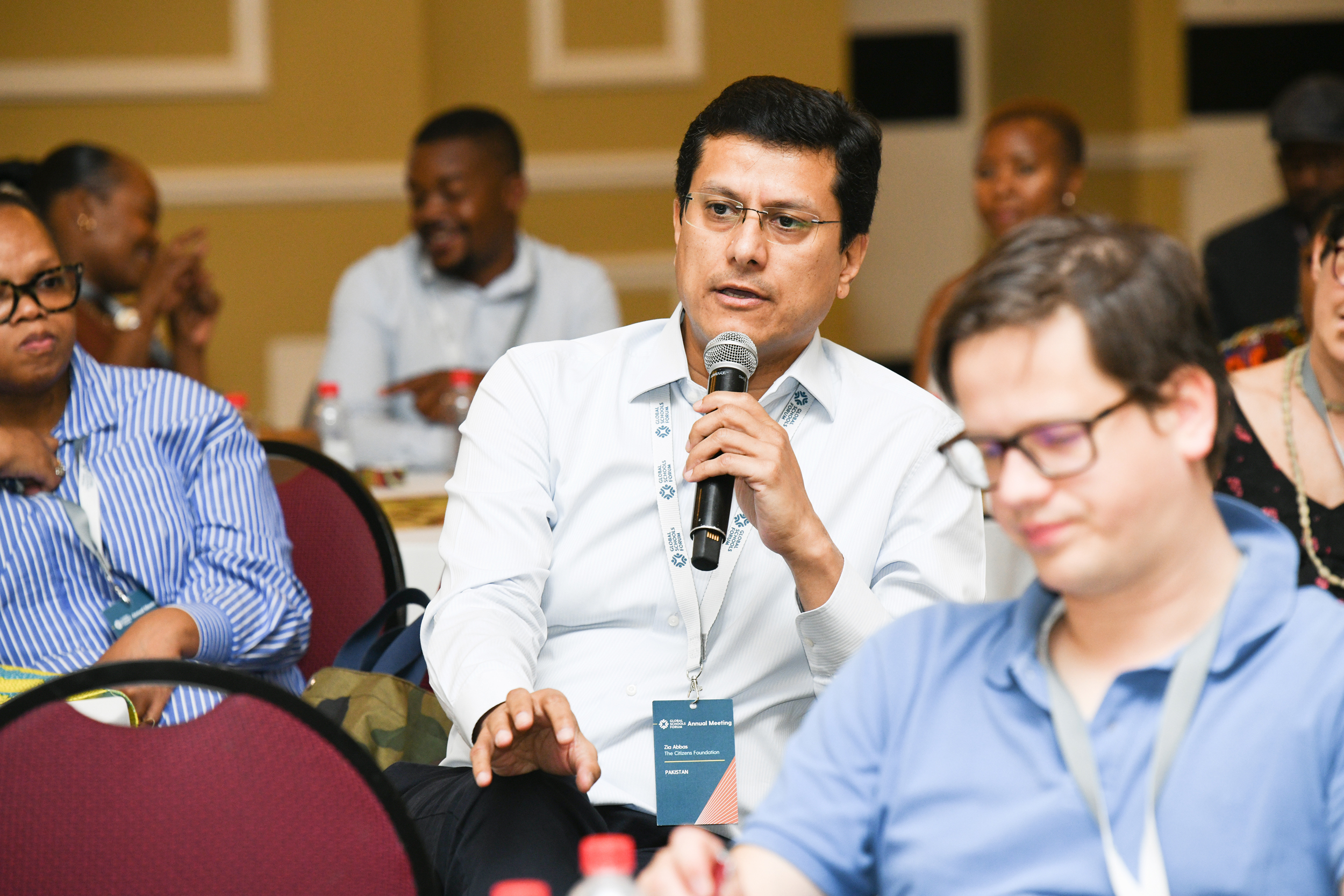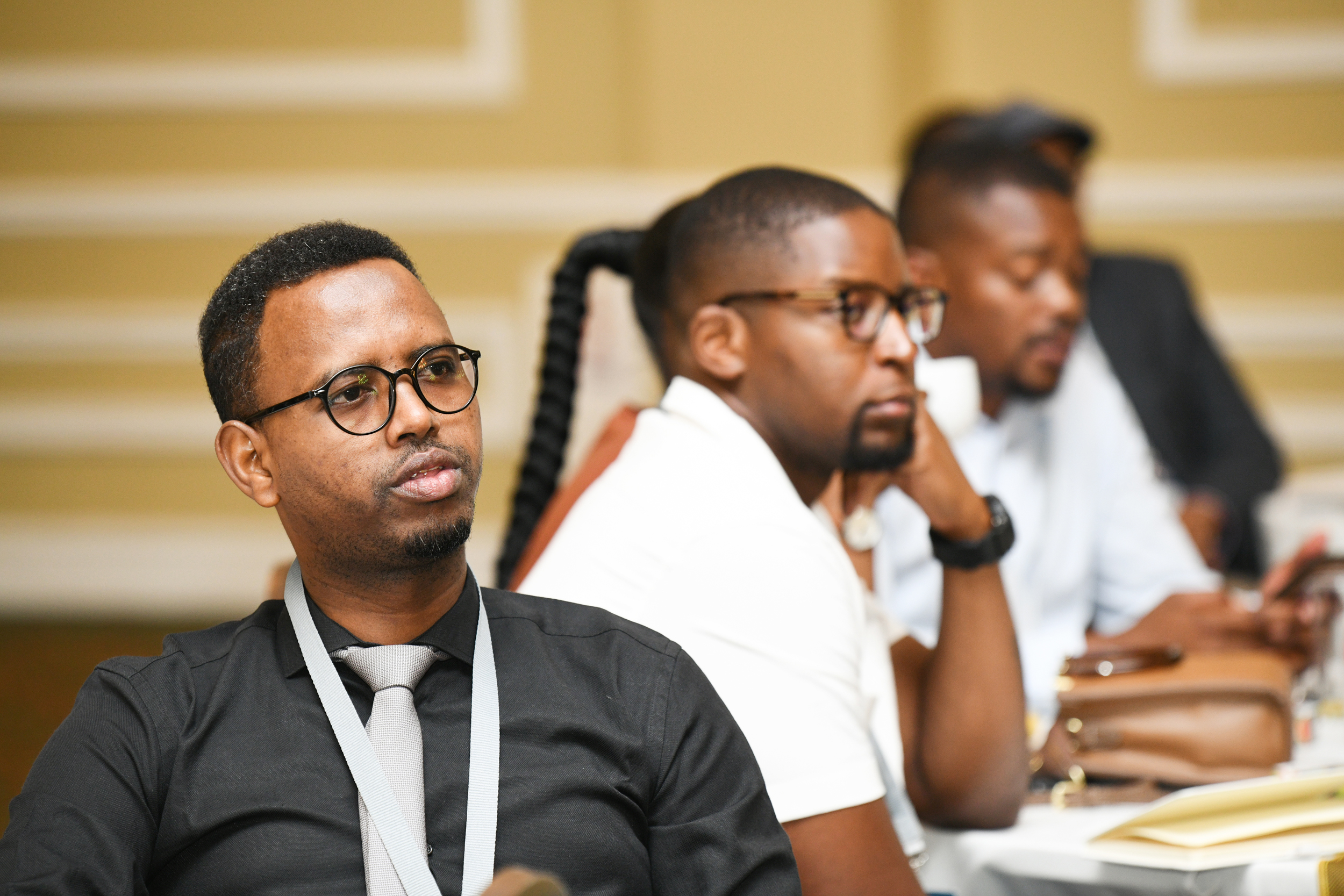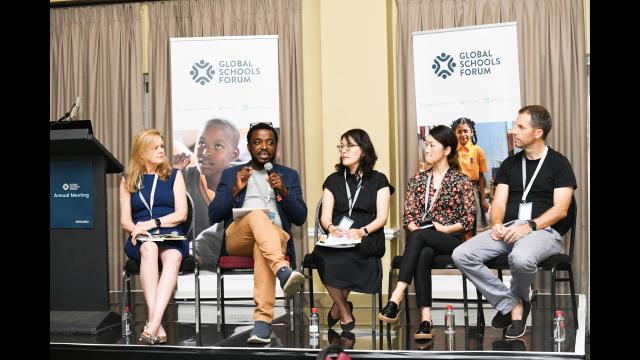On the final day of our Annual Meeting, GSF hosted a breakfast session to share our new three-year strategy with attendees. This provided an opportunity for our community to understand our strategic priorities and ask questions in an open forum. Our 2022-25 Strategy has the community at the centre of all our work and includes three key pillars: to strengthen and grow a global learning community, to test promising solutions and diffuse evidence, and to partner strategically to shape policy and scale solutions. The session felt very constructive with engagement and feedback for us to consider going forwards.
Talking about the atmosphere GSF creates for our community, Tom Dannat, CEO Street Child said: "It’s great to be back in person after three years. What makes this special is the genuine diversity of actors from different geographies from operators to funders, and everyone in between. We attend lots of conferences but there's something in the atmosphere here which is different. It’s more interesting, more enjoyable and somehow less pressured. Street Child finds it really enriching."
GSF plays an active role engaging in global policy processes and shaping the discussion on how non-state capacity can be harnessed to improve education outcomes equitably. Under the theme of Nurturing Partnerships on Day 3, sessions involved panel discussions on The Role of Networks, Policy Discussions and Facilitating Strong Partnerships. Emily Gustafsson-Wright of Brookings Institute chaired a panel discussion on public private partnerships (PPPs) and innovative finance solutions. Pankaj Jain of Gyan Shala, and Harry Patrinos of The World Bank contributed ideas and examples on lessons learned from existing PPPs to shape the design of new ones.

The session on Facilitating Strong Partnerships involved Suezan Lee and Yvonne Naluvwi of USAID, Paul Skidmore of Rising Academies Network, George Werner of Digital Skills Foundation and Hana Yoshimoto of UNICEF. Key takeaways from this session included the need for better alignment of donor funding, the importance of building trust, and the need to move away from treating education as a simple procurement exercise.
Attendees shared a perception that government education ministries are often defined as more transactional than transformative which needs to change. Part of the non-state role here could be to enable government education ministers to have space for reflection and growth to gain new perspectives on education transformation. Also, on the subject of project timeframes, the default time scale worked to on projects is normally 1-3 years but this is a problem worth reflecting on because relationships take more time to strengthen.
There must be space in the funding mechanism that creates an opportunity to place trust in the framework too. It's also important to consider how the community can build better partnerships with governments and others when funding. Trust with the collaborative partner is important and without it, it is very challenging to build sustainable partnerships.

Global Schools Forum is a catalytic community of 75 members across the globe and so the final session on The Role of Networks in Driving Collective Action created enthusiastic conversation from participants. The panel involved GSF CEO Aashti Zaidi Hai, Pablo Jaramillo of Alianza Educativa and Suezan Lee of USAID. GSF’s own evolution as a network has involved investing time to build trust. For GSF, it has been important to consider how we connected and in our first few years, the focus was on building and nurturing trust and building on the diversity of actors within our community.
Talking about the opportunity presented by our Annual Meeting to share and collaborate, Hasienna Marriot, Global Teacher Institute, said:
I think being around like-minded people has really filled my cup. I feel like now I can take on so much more, I can see my vision in other people's eyes. It’s just that sharing and collaboration that I absolutely love, I feel like I could learn from them, and they can learn from me.
Networks also enable opportunities to create bridges with unions, policy makers and public servers but there is further work to consider how we build bridges with the donor network. It would be good to see more local association groups in the non-state sector too. Also, technology has great benefits such as chat rooms for operational people, where they can connect. Student voice can make a difference in this place such as student unions and associations to understand their expectations and experiences, as well as co-creation. We hope this session inspired members and attendees to think about how they can create and build their own networks to further their respective areas of work around the world.
GSF would like to thank all the attendees for their energy, enthusiasm and contribution at our annual meeting in Johannesburg. The team at GSF will be following up with attendees with more information, including dates and location for next year.

